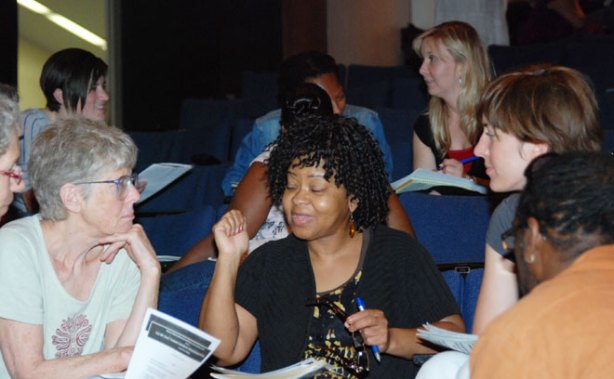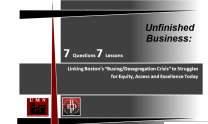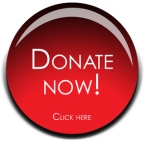About the Boston Busing/Desegregation Project

The Boston Busing/Desegregation Project strives to link our city’s history to its present and future, with a focus on issues of race and class equity, achieving excellence in our urban institutions, and democratic access to power and resources to make equity and excellence happen. We also believe that engagement of Boston’s diverse communities is key to producing the school system and city we want.
To this end, we strive to achieve or contribute to four major outcomes regarding our past, present, and future.
What We Will Achieve:
- Greater awareness of a more inclusive story about our past: the history that led to and followed Boston’s busing/desegregation crisis. This is shaped by previously excluded or marginalized voices and highlights the trauma and impact of the era that continues to exist in the city. It also includes public acknowledgement of an inclusive history.
- A more inclusive history that informs decision making today: about race and class equity, democratic access, and achieving excellence in the city and institutions that impact it. This includes making sure that lessons from history about these issues are considered as Boston re-vamps its school assignment process and designs and implements other reforms. This also includes raising awareness about the influence of larger political forces, such as corporate interests, impacting excellence, equity, and access today in public education, our city, and our society.
- A shared vision and action steps across difference to increase race and class equity, democratic access, and higher quality institutions. This includes a list of recommendations and action steps for moving forward, developed in collaboration with community partners and informed by our past, our present, and the future we want — for public education, our families, our communities, and Boston.
What We Will Contribute to:
Individual and collective learning, leadership, action, and advocacy across difference for policy, institutional, and community change to achieve the shared vision and priorities that emerge from working together to achieve equity, access, and excellence for all.
For Report on the Project’s first phase, Click here.
History and Background:
The project grew from UMN attempts to organize Black parents around public school education. It also came up in its work around Criminal Offender Records Information (CORI) reform where organizers frequently heard stories about Boston’s busing/desegregation crisis as “the elephant in the room” for diverse individuals and communities throughout the city.
This work revealed race and class dynamics that are barriers to the building of a public education system and city that works for all. UMN realized a need to revisit the period of busing and desegregation in Boston.
The project is gathering knowledge from written history, individuals, and communities. The process moves past old misunderstandings and builds on successes and shared values. We acknowledge the many forms of truth about this history and its impact. The project includes the staff of UMN, a Steering Committee, a Learning Network, a local leaders group, and an advisory board. All are committed to the research and analysis needed to truly understand the history of busing and desegregation.
Phase One Key Findings
Our organizing, interviews,affinity groups and research uncovered the following reasons to do this project:
As we have studied the history of desegregation in Boston and the U.S. and talked with people around the city, two overarching findings have stood out:
1) We must return together to deepen our understanding of the history of busing/desegregation.
2) This understanding must be used to address contemporary challenges.
Our understanding of the busing/desegregation crisis is incomplete and in some ways ill-informed. The “master narrative” about this era distorts, minimizes, or excludes the stories of many communities and individuals. The resulting lack of understanding impacts individuals and groups living in the city today. People continue to live with the trauma of that era. Meanwhile, race and class inequities persist. Resources are unequally distributed along race and class lines. Some communities continue to feel powerless and poorly represented. Achievement, opportunity, power, and democracy gaps persist—and in some cases are growing. These gaps will continue until and unless we come to grips with our past because we cannot fully address what has not been acknowledged or understood.
Working Goals
1. Develop a shared history and context of the Boston desegregation/busing crisis.
2. Support and learn from those affected by the experience of Boston busing and desegregation.
3. Foster an understanding of how the desegregation/busing legacy shapes the challenges we face now.
4. Learn together to address dynamics of race, class, and power that get in the way of quality education and equity in Boston.
5. Increase public understanding of the importance of building a world-class public education system at the pre-college level in Boston, leading to equal opportunity, a stronger community and more meaningful lives.
6. Build a community of diverse and committed people who work together to assure quality public education and equity for all in Boston.
Framework: Truth, Learning and Change
BBDP focuses on three things: truth-telling, learning from that truth (or those truths), and making change based on our new shared knowledge. For that reason we see the project as having four distinct components that align to the Bridges Transitions model promoted by the Andrus Family Fund (see below). Each phase will include its own learning and recommendations:
Phase One: Understanding our context — who Boston was before the crisis — and building a committed learning community to support this project. In order to do justice to a Truth Process, we must spend a period of time putting the process in a historical context and making clear exactly what the Truth Process will cover. It also involves building a “container” called the Learning Network: a growing diverse group of people with diverse knowledge and skills who will learn together from the process and bring their collective skills and talent to holding the city through this process. The framing of phase one is both conceptual and physical: we will build a process in which we continue to clarify and refine our focus and build a learning community. As one youth leader challenged us: “Trauma should motivate a community, not disillusion them.”
Phase Two: Diverse communities reflecting on and understanding their own story. It is important to focus first on supporting specific racial groups in all their class and cultural diversity to better understand their own story, before bringing different whole communities together to search for a deeper understanding of Boston’s collective story. This phase will include learning about:
- The different histories and relationships to “race” that shaped people within each racial group
- How those different histories and relationships shaped the responses of subsets within each racial group to busing/desegregation as well as opportunities for these different subsets following busing/desegregation.
- The condition of these different subsets today; and developing solidarity within each racial group to stand for improving opportunity for all. In the Transitions Model, this first phase helps each racial group get to an important “ending”.
Phase Three: Boston Reckons with the Busing/Desegregation Process. This phase will bring different racial groups together for shared “hearings” and come to a shared history though the Commission. They will look at how Boston dealt with the ending of legal segregation of schools – and get to shared understanding of what was/is being left behind and shared commitment to go forward based on what was learned through the Truth Process. They will at the same time begin the collective learning process as they listen to and learn what other groups have learned about themselves, and as they reflect on what this new learning means to them, how it shapes their understanding about the busing crisis and its impacts – its legacy and possibilities — for the people, communities, and city of Boston.
Phase Four: Toward a New Beginning. In this phase of the project, we are bringing different people together across all kinds of differences to envision the future and priorities for impact they want for this city and its public education system, in order to create greater inclusion, development, and opportunity for all. This also helps set the stage and build committed leadership and resources to support joint action as well as continued public learning and engagement to accomplish the vision and priorities that emerge from this process for building a better Boston for all.
Committees:
Steering Committee
Ann Moritz
Barbara Lewis
Ceasar McDowell
Sharlene Cochrane
Curdina Hill
David Jenkins
Francis Roache
Janine Quarles
Scott Mercer
Sherry Brooks Roberts
Rebecca Schuster
Sylvia Wright
Tom Louie
Paula Elliott
Learning Network Planning Committee
Curdina Hill, co-chair
Paula Elliott, co-chair
Chris Gallgher
Wilbur Herrington
Marlene Fine
Robbie McCauley
OCO Committee
Tom Louie, co-chair
Ann Moritz
Franis Roache
Hodari Cail
Program Committee
Becky Schuster, co-chair
Rosa Hunter, co-chair
Sharlene Cochrane
Kathleen Kelley
Staff
Donna Bivens, Project Director
Meghan Doran, Organizer
Jacqui Lindsay, Consultant
Sandras Barnes, Volunteer Co-ordinator
Denise Wilson-Turner, Conference Planning
Partners
Massachusetts Commission Against Discrimination
Civil Rights and Restorative Justice Project
Trotter Institute
YWCA
Supported by Funding from
The Andrus Family Fund
Mass Humanities
The Ford Foundation

